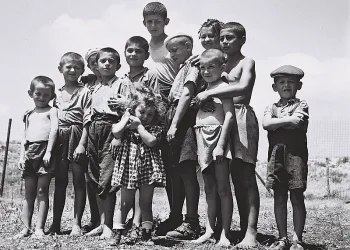Amid a backdrop of pressing international issues, Kaja Kallas, the EU High Representative for Foreign Affairs and Security Policy, marked her inaugural Foreign Affairs Council with a focus on Syria, Ukraine, and Georgia.
Speaking ahead of the meeting, Kallas emphasized decisive actions to address these challenges, underlining the EU’s commitment to global stability and human rights.
Syria: Steps Towards Stability
Recent discussions in Jordan, involving Arab nations, Türkiye, and the United States, laid the groundwork for EU engagement with Syria’s new leadership.
Kallas highlighted the EU’s goal of fostering a stable, inclusive, and peaceful Syria, with a government that genuinely represents its people.
-
Actions discussed:
- The EU’s top diplomat in Syria is visiting Damascus to establish official contact with the new government.
- The Foreign Affairs Council will debate the appropriate level of engagement with Syria and potential future actions.
- Principles of engagement emphasize tangible progress over promises.
In Kallas’s words,
“Syria faces an optimistic yet uncertain future. Our role is to guide this process in the right direction.”
Ukraine: Sanctions as a Strategic Tool
The Council is set to adopt the EU’s 15th sanctions package targeting enablers of the ongoing war in Ukraine. Designed to weaken Russian capabilities, the package also signals the EU’s determination to hold all actors accountable.
Sanctions Target |
Measures Imposed |
|---|---|
| Russia’s Shadow Fleet | 52 vessels banned from EU ports, maritime service restrictions. |
| North Korean Officials | New restrictions targeting individuals involved in supporting Russia. |
| Chinese Entities | Sanctions against companies supplying drone components and electronics. |
By sanctioning entities circumventing restrictions, including those in China and North Korea, the EU aims to curb Russia’s military-industrial complex.
“The message is clear,” stated Kallas, “those who enable war will pay a price.”
Georgia: EU Expectations and Consequences
Recent political developments in Georgia have raised concerns within the EU. Kallas criticized the Georgian government’s repression of opposition voices, warning that such actions diverge from the expectations of EU candidate nations.
- Proposed measures include:
- Sanctions targeting individuals suppressing political opposition.
- Potential restrictions on Georgia’s visa-free regime with the EU.
The High Representative stressed the importance of dialogue while reinforcing the EU’s readiness to act if democratic standards are not upheld.
Broader Implications and the Road Ahead
Kallas dismissed the prospect of EU peacekeeping troops in Ukraine, citing the absence of peace as a fundamental barrier. She also highlighted Russia’s weakened position globally, particularly in its alliances with Iran and Türkiye, which she described as unreliable partnerships.
Through her remarks, Kallas underscored the EU’s proactive stance on foreign policy issues. She reiterated the importance of alignment among international and regional actors to ensure coordinated and effective action.
In Summary
The Foreign Affairs Council’s agenda, led by Kaja Kallas, reflects the EU’s strategic priorities in tackling international crises.
From sanctions to engagement strategies, these measures demonstrate the EU’s commitment to fostering stability, supporting democracy, and holding aggressors accountable.
Sources: THX News & European Union.








